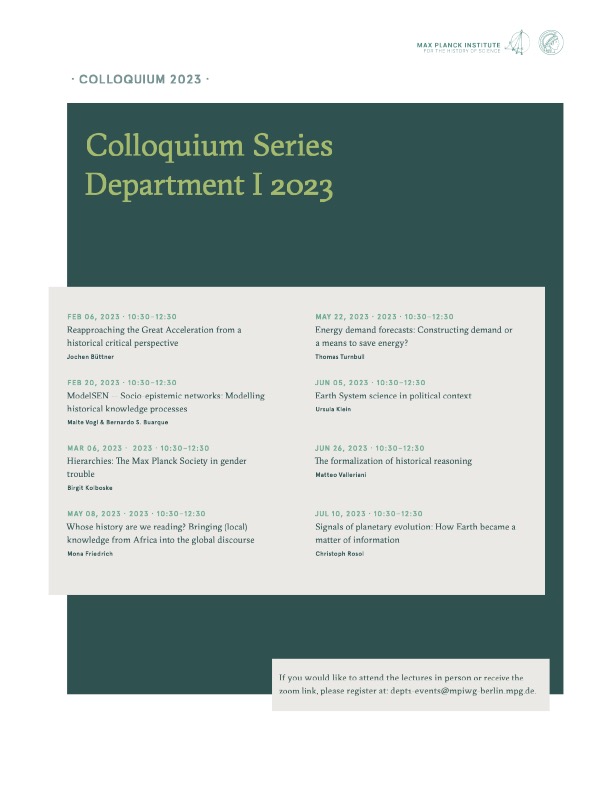Feb 20, 2023
ModelSEN—Socio-Epistemic Networks: Modelling Historical Knowledge Processes
- 10:30 to 12:30
- Colloquium
- Dept. Renn
- Several Speakers
- Malte Vogl
- Bernardo Sousa Buarque
This is a lecture from Colloquium Series Department 1.
Starting from the premise of the temporal embeddedness of knowledge in social and material conditions, the BMBF-funded ModelSEN project develops quantitative methods in the field of historical network research, and digital humanities to support a wide range of case studies, from the history of general relativity, over historical letter networks, to the defusion of statistical methods in biology, and more. In this presentation, the three main focus points of the project: community building, numerical and structural methods, and agent-based modeling will be introduced with examples and results by members of the project. Results include a project compendium as a way to collect tutorials and best-practice approaches to the developed methods, the continuous development of software tools to support reproducible science and make the underlying assumptions, for example, on sources and model building transparent, and the development of teaching resources for the developed methods.

Contact and Registration
If you would like to attend the lectures in person or receive the zoom link, please register at: dept1-events@mpiwg-berlin.mpg.de.
About This Series
This event is part of the Colloquium Series Department I—2023.
